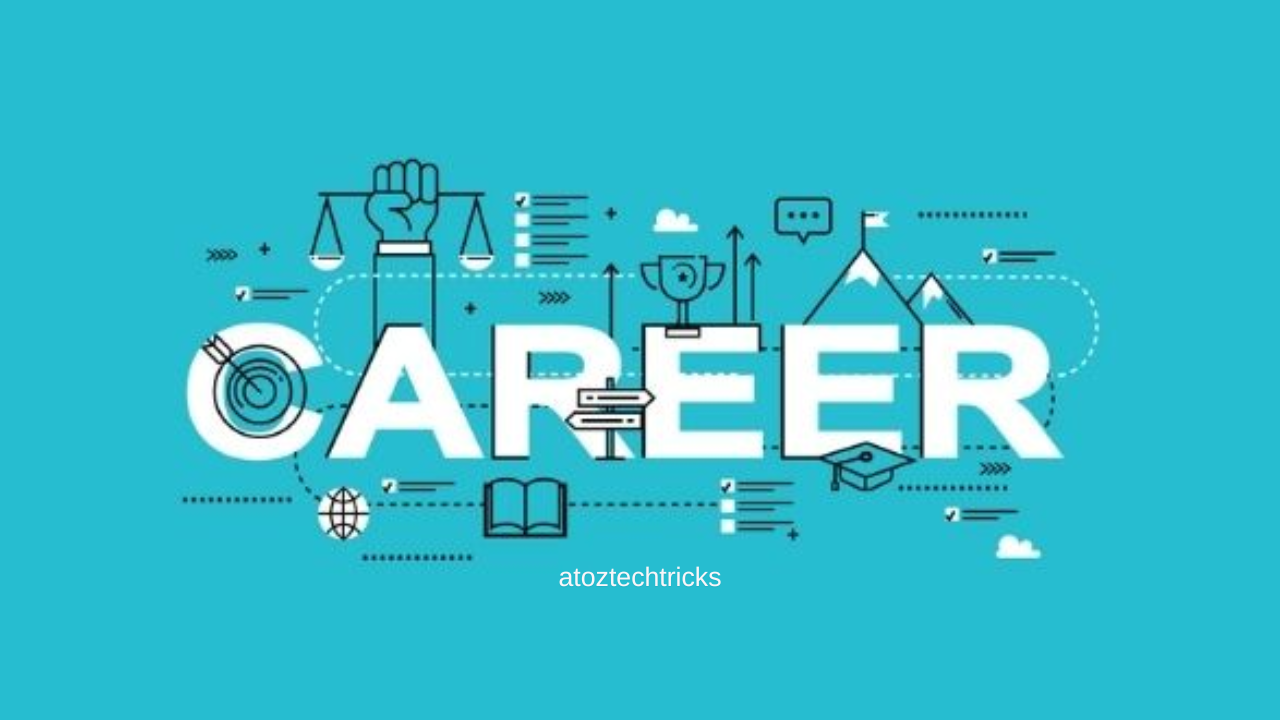Counseling Careers: A Comprehensive Guide
Counselling careers are diverse, impactful, and crucial to the well-being of individuals and communities. This comprehensive guide will explore various aspects of counselling careers, including the types of counselling roles, required qualifications, job outlook, and practical tips for success in the field.
Introduction to Counseling Careers
Counselling is a profession dedicated to helping individuals manage and overcome personal, social, and psychological challenges. Counsellors work in various settings, including schools, private practices, hospitals, and community organizations. They employ therapeutic techniques to support clients in achieving emotional, mental, and behavioural well-being.
Types of Counseling Careers
Counselling careers encompass a wide range of specializations. Here are some of the most common roles:
1. Clinical Mental Health Counselor
Clinical mental health counsellors provide therapy for individuals dealing with mental health disorders, such as depression, anxiety, and bipolar disorder. They conduct assessments, develop treatment plans, and offer individual and group therapy. Clinical mental health counsellors may work in private practices, hospitals, or mental health clinics.
Key Responsibilities:
- Conducting mental health assessments.
- Developing personalized treatment plans.
- Providing individual and group therapy sessions.
- Collaborating with other healthcare professionals.
Qualifications:
- Master’s degree in counselling or a related field.
- State licensure (requirements vary by state).
- Clinical experience through internships or supervised practice.
2. School Counselor
School counsellors support students in their academic, social, and emotional development. They work within educational institutions to address issues such as academic performance, bullying, and career planning. School counsellors also collaborate with teachers and parents to create supportive learning environments.
Key Responsibilities:
- Providing individual and group counselling to students.
- Assisting with academic and career planning.
- Addressing behavioural issues and academic difficulties.
- Conducting workshops on topics like stress management and study skills.
Qualifications:
- Master’s degree in school counselling or a related field.
- State certification or licensure (requirements vary by state).
- Experience working with children and adolescents.

3. Marriage and Family Therapist (MFT)
Marriage and family therapists specialize in working with couples and families to address relationship issues, communication problems, and family dynamics. They provide therapy to help clients improve their relationships and resolve conflicts.
Key Responsibilities:
- Conducting therapy sessions with couples and families.
- Developing treatment plans to address relationship issues.
- Facilitating communication and conflict resolution.
- Supporting clients in achieving relationship goals.
Qualifications:
- Master’s degree in marriage and family therapy or a related field.
- State licensure as a marriage and family therapist.
- Clinical experience through internships or supervised practice.
4. Substance Abuse Counselor
Substance abuse counsellors help individuals struggling with addiction to drugs, alcohol, or other substances. They provide therapy, support, and resources to assist clients in overcoming their addiction and maintaining sobriety.
Key Responsibilities:
- Conducting assessments of substance abuse issues.
- Developing and implementing treatment plans.
- Providing individual and group counselling.
- Offering resources and support for long-term recovery.
Qualifications:
- Master’s degree in counselling, psychology, or a related field.
- State licensure or certification as a substance abuse counsellor.
- Experience in addiction treatment settings.
5. Career Counselor
Career counsellors assist individuals in exploring career options, setting career goals, and developing job search strategies. They provide guidance on career planning, resume writing, and interview preparation.
Key Responsibilities:
- Assessing clients’ career interests and skills.
- Guiding career paths and job opportunities.
- Assisting with resume writing and interview preparation.
- Conducting workshops on career development topics.
Qualifications:
- Master’s degree in career counselling, counselling psychology, or a related field.
- Certification in career counselling (optional but preferred).
- Experience in career counselling or human resources.
Educational and Licensing Requirements
To pursue a career in counselling, certain educational and licensing requirements must be met. Here’s an overview:
1. Educational Requirements
Most counselling careers require a master’s degree in counselling, psychology, social work, or a related field. Some roles, such as clinical psychologists, may require a doctoral degree (Ph.D. or Psy.D.). Coursework typically includes subjects such as:
- Human Development
- Counselling Theories and Techniques
- Psychopathology
- Ethical and Legal Issues in Counseling
- Group Counseling
2. Licensing and Certification
Licensing requirements vary by state and specialization. Generally, counsellors must:
- Complete a master’s or doctoral degree from an accredited program.
- Obtain supervised clinical experience through internships or practica.
- Pass a national or state licensing examination.
- Fulfill continuing education requirements to maintain licensure.
Certifications, such as the National Certified Counselor (NCC) credential or specialized certifications (e.g., Certified Substance Abuse Counselor), may enhance career opportunities and professional credibility.

Skills and Qualities of Effective Counselors
Successful counsellors possess a range of skills and qualities that enable them to effectively support their clients. Key attributes include:
1. Empathy and Compassion
Counsellors need to demonstrate empathy and compassion to build trust and rapport with clients. Understanding clients’ emotions and experiences is crucial for effective therapy.
2. Communication Skills
Strong verbal and non-verbal communication skills are essential for counsellors. They must be able to listen actively, ask insightful questions, and provide clear feedback and guidance.
3. Problem-Solving Abilities
Counsellors often face complex issues that require creative problem-solving. The ability to develop and implement effective treatment plans is vital.
4. Emotional Resilience
Counselling can be emotionally demanding. Counsellors need to manage their stress and maintain emotional resilience to support clients effectively.
5. Cultural Competence
Counsellors should be culturally competent, understanding and respecting clients’ diverse backgrounds and perspectives. This includes being aware of cultural influences on mental health and treatment approaches.
Job Outlook and Career Opportunities
The job outlook for counselling careers is generally positive, with demand expected to grow due to increasing awareness of mental health issues and a greater emphasis on preventative care.
1. Job Growth
According to the U.S. Bureau of Labor Statistics (BLS), employment for mental health counsellors is projected to grow by 23% from 2021 to 2031, much faster than the average for all occupations. The demand for school counsellors and marriage and family therapists is also expected to rise.
2. Salary Expectations
Salaries for counselling professionals vary based on factors such as specialization, location, and experience. As of 2023:
- Clinical Mental Health Counselors: Median annual wage of $49,000.
- School Counselors: Median annual wage of $61,000.
- Marriage and Family Therapists: Median annual wage of $56,000.
- Substance Abuse Counselors: Median annual wage of $48,000.
- Career Counselors: Median annual wage of $56,000.
3. Career Advancement
Counsellors can advance their careers by gaining additional certifications, pursuing doctoral degrees, or specializing in niche areas. Leadership roles, such as program directors or clinical supervisors, offer opportunities for career growth and increased responsibilities.
Advertising and Public Relations Careers: A Comprehensive Guide
Challenges and Rewards of a Counseling Career
1. Challenges
- Emotional Strain: Counselors often deal with clients’ intense emotional issues, which can be emotionally taxing.
- Paperwork and Documentation: Maintaining detailed records and documentation can be time-consuming.
- Work-Life Balance: Balancing a demanding job with a personal life can be challenging, especially in high-stress environments.
2. Rewards
- Impactful Work: Helping clients achieve personal growth and overcome challenges is deeply rewarding.
- Diverse Work Environments: Counselors can work in various settings, from schools to private practices, offering flexibility and variety.
- Continuous Learning: The field of counselling offers opportunities for ongoing professional development and learning.
Tips for Success in a Counseling Career
- Pursue Relevant Education: Choose a reputable counselling program and gain hands-on experience through internships.
- Seek Supervision and Mentorship: Regular supervision and mentorship can provide valuable guidance and support.
- Engage in Continuing Education: Stay updated with the latest developments and techniques in counselling through workshops and courses.
- Practice Self-Care: Prioritize self-care and manage stress to maintain personal well-being and effectiveness as a counsellor.
- Build a Professional Network: Connect with other professionals in the field to share knowledge, resources, and opportunities.
Counselling careers offer the chance to make a significant difference in people’s lives by providing support and guidance through various challenges. With a wide range of specializations and a positive job outlook, counselling counselling is and impactful profession. By meeting educational and licensing requirements, developing essential skills, and staying committed to professional growth, aspiring counsellors have successful and rewarding careers in this vital field.





Post Comment